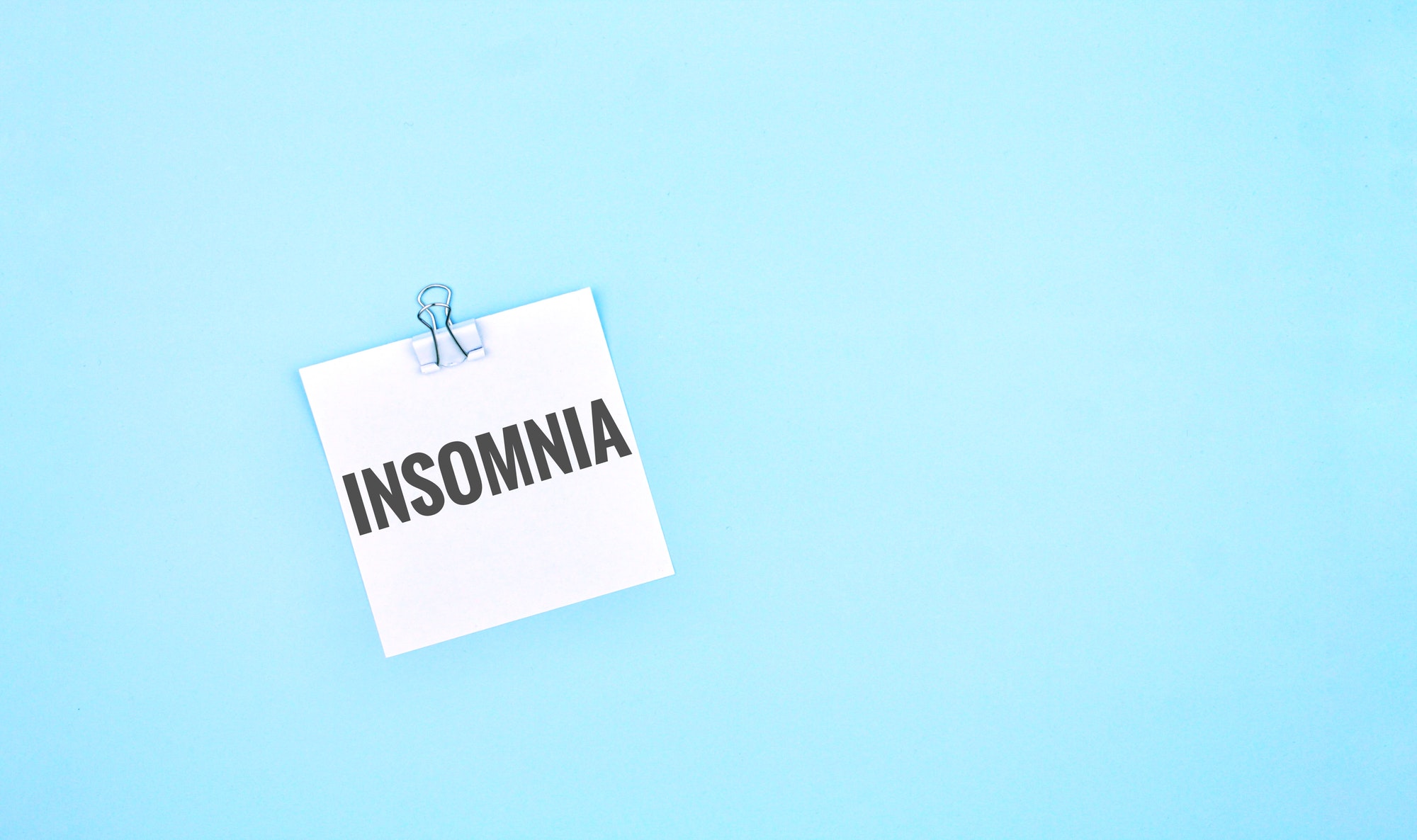Help! I can’t sleep….
Doctor: Listen, if you ever expect to cure your insomnia, you just have to stop taking your troubles to bed with you.
Patient: I know, but I can’t…my wife refuses to sleep alone.
All humor aside, insomnia is not a joke. Sleep influences the HPA axis and all the hormones associated with good health.
The Dangers of Insomnia: How Lack of Sleep Can Harm Your Health
Insomnia is a common sleep disorder that affects millions of people worldwide. It is characterized by difficulty falling asleep, staying asleep, or waking up too early, resulting in insufficient or poor-quality sleep. Insomnia can have various causes, such as stress, anxiety, depression, medical conditions, medications, lifestyle habits, or environmental factors1.
Insomnia is not just a nuisance that makes you feel tired and groggy the next day. It can also have serious consequences for your physical and mental health, as well as your overall well-being. In this post, we will explore some of the dangers of insomnia and how it can harm your health.
Insomnia is a common sleep disorder that affects millions of people worldwide. It is characterized by difficulty falling asleep, staying asleep, or waking up too early, resulting in insufficient or poor-quality sleep. Insomnia can have various causes, such as stress, anxiety, depression, medical conditions, medications, lifestyle habits, or environmental factors1.
Insomnia is not just a nuisance that makes you feel tired and groggy the next day. It can also have serious consequences for your physical and mental health, as well as your overall well-being. In this post, we will explore some of the dangers of insomnia and how it can harm your health.
How Insomnia Affects Your Body:
Insomnia can affect your body in many ways, such as:
Insomnia can affect your body in many ways, such as:
- Weakening your immune system: Sleep is essential for your immune system to function properly and fight off infections and diseases. When you don't get enough sleep, your immune system becomes weaker and less responsive, making you more susceptible to illnesses, such as colds, flu, or COVID-192.
- Increasing your risk of cardiovascular disease: Sleep is also important for your heart health and blood pressure regulation. When you don't get enough sleep, your blood pressure and heart rate may increase, and your blood vessels may become inflamed and damaged. This can increase your risk of developing hypertension, atherosclerosis, stroke, heart attack, or heart failure3.
- Impairing your metabolism and increasing your risk of diabetes: Sleep is also crucial for your metabolism and blood sugar control. When you don't get enough sleep, your body may produce less insulin, the hormone that regulates your blood sugar levels, and more cortisol, the hormone that stimulates your appetite and stress response. This can lead to insulin resistance, glucose intolerance, weight gain, and type 2 diabetes4.
- Disrupting your hormones and increasing your risk of cancer: Sleep is also vital for your hormonal balance and circadian rhythm, the natural cycle of your body clock that regulates your sleep-wake cycle and other biological processes. When you don't get enough sleep, your hormones, such as melatonin, estrogen, testosterone, and growth hormone, may become imbalanced and affect your mood, libido, fertility, and growth. Moreover, lack of sleep may also interfere with your DNA repair and increase your risk of developing certain types of cancer, such as breast, prostate, or colorectal cancer.
How Insomnia Affects Your Mind:
Insomnia can also affect your mind in many ways, such as:
Insomnia can also affect your mind in many ways, such as:
- Reducing your cognitive abilities and performance: Sleep is essential for your brain to process, consolidate, and store information, as well as to perform various cognitive functions, such as attention, memory, learning, reasoning, and problem-solving. When you don't get enough sleep, your brain may become foggy, sluggish, and less efficient, impairing your cognitive abilities and performance at work, school, or daily activities.
- Increasing your risk of mental health disorders: Sleep is also important for your mental health and emotional regulation. When you don't get enough sleep, your mood may become unstable, irritable, and depressed, and your stress levels may rise. This can increase your risk of developing mental health disorders, such as depression, anxiety, bipolar disorder, or psychosis.
- Decreasing your quality of life and happiness: Sleep is also crucial for your quality of life and happiness. When you don't get enough sleep, you may experience lower levels of satisfaction, well-being, and happiness, and higher levels of pain, fatigue, and distress. This can affect your relationships, social interactions, hobbies, and enjoyment of life.
How to Treat and Prevent Insomnia
If you suffer from insomnia, you don’t have to endure the negative effects of lack of sleep on your health. There are various ways to treat and prevent insomnia, such as:
If you suffer from insomnia, you don’t have to endure the negative effects of lack of sleep on your health. There are various ways to treat and prevent insomnia, such as:
- Seeking medical help: If your insomnia is severe, chronic, or caused by an underlying medical condition or medication, you should consult your doctor or a sleep specialist for diagnosis and treatment. You may be prescribed medication, such as sleeping pills, melatonin, or antidepressants, to help you sleep better. However, you should use these medications with caution, as they may have side effects, interactions, or dependence.
- Following good sleep hygiene: Good sleep hygiene is a set of habits and practices that can help you improve your sleep quality and quantity. Some of these habits include:
- Keeping a consistent bedtime and wake-up time, even on weekends and holidays
- Creating a comfortable, quiet, dark, and cool sleeping environment
- Avoiding caffeine, alcohol, nicotine, and heavy meals close to bedtime
- Limiting naps during the day, especially in the afternoon or evening
- Exercising regularly, but not too close to bedtime
- Avoiding screens, such as TV, computer, or phone, at least an hour before bed
- Engaging in relaxing activities, such as reading, listening to music, or meditating, before bed
- Avoiding checking the clock, worrying about sleep, or using your bed for anything other than sleep or sex
- Trying cognitive-behavioral therapy (CBT): CBT is a type of psychotherapy that can help you change your thoughts, beliefs, and behaviors that may interfere with your sleep. CBT can help you:
- Identify and challenge your negative or unrealistic thoughts about sleep, such as "I can't function without eight hours of sleep" or "I will never be able to sleep well"
- Identify and challenge your negative or unrealistic thoughts about sleep, such as "I can't function without eight hours of sleep" or "I will never be able to sleep well"
- Learn and practice relaxation techniques, such as deep breathing, progressive muscle relaxation, or guided imagery, to reduce your stress and anxiety and calm your body and mind before bed
- Implement stimulus control techniques, such as only going to bed when you are sleepy, getting out of bed if you can't sleep, and returning to bed only when you are sleepy again, to reassociate your bed with sleep and not with wakefulness
- Follow sleep restriction techniques, such as limiting your time in bed to your actual sleep time, and gradually increasing it as your sleep improves, to increase your sleep efficiency and quality
Insomnia is a serious condition that can have detrimental effects on your health. However, you don’t have to suffer from it. By seeking medical help, following good sleep hygiene, and trying cognitive-behavioral therapy, you can treat and prevent insomnia and enjoy a better sleep and a healthier life.
Source(s)
- What is Insomnia and its possible symptoms, causes, risk and prevention methods?
- What are possible complications of insomnia?
- Insomnia - Symptoms and causes - Mayo Clinic
- https://microsoftstart.msn.com/

